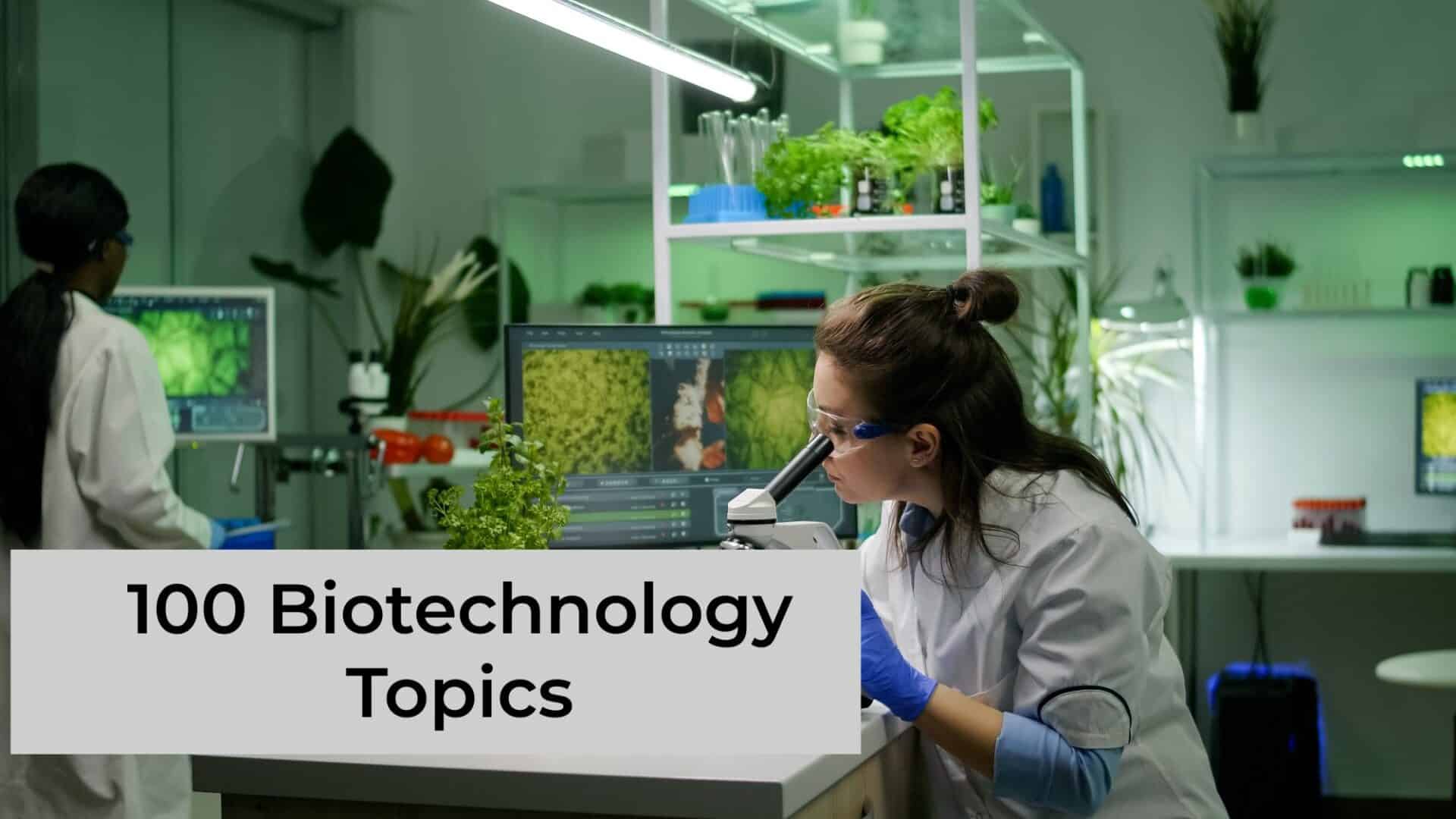
Table of Contents
Biotechnology is a wide discipline that harnesses cellular and biomolecular processes to develop technologies that help in improving the health and lives of the people. It bridges the gap between biology and technology, enabling advancements across multiple industries, from healthcare to Engineering agriculture and environmental sustainability. With rapid growth and wide-ranging applications, biotechnology has become a modern science in the field of Medical industry.
What Does Biotechnology Include?
Biotechnology includes the use of biological systems, organisms, or their derivatives to develop products and technologies that address various human needs. It merges biological science with engineering and technology to solve problems and create new solutions across different industries. Key areas biotechnology encompasses include:
- Genetic Engineering: Manipulating an organism’s genetic material to produce desirable traits, such as disease resistance in crops or the production of therapeutic proteins in microorganisms.
- Molecular Biology: Studying the molecular mechanisms within cells, often to understand how genes are expressed or regulated, which is critical for fields like gene therapy or vaccine development.
- Bioinformatics: Using computational tools and algorithms to analyze biological data, such as genomic sequences, which supports drug discovery, disease research, and personalized medicine.
- Cell and Tissue Culture: Growing cells or tissues outside of their natural environment for research, drug development, or regenerative medicine.
- Bioprocessing: The use of living cells or organisms to produce large quantities of biologically active products, such as enzymes, antibiotics, or vaccines.
- Environmental Biotechnology: Applying biological processes to environmental challenges, such as waste treatment, bioremediation (using organisms to clean up pollutants), and sustainable energy production.
- Agricultural Biotechnology: Enhancing agricultural practices by modifying crops and livestock to improve yield, nutritional value, and resistance to pests and diseases.
Biotechnology is not just a science; it’s the bridge between innovation and solutions for a better tomorrow.
100 UNIQUE BIOTECHNOLOGY TOPICS
Genetic Engineering & Molecular Biology
- CRISPR-Cas9 Technology: Current Advancements and Therapeutic Implications
- Applications of Gene Editing in the Treatment of Genetic Disorders
- The Ethical Challenges of Human Germline Editing
- Epigenetic Modifications and Their Role in Cancer Therapy
- Gene Silencing Techniques and Their Applications in Disease Treatment
- Development of Precision Gene Therapies for Rare Diseases
- CRISPR-based Diagnostics for Early Disease Detection
- Gene Drive Technology in Insect Population Control
- Single-Cell Genomics and Its Impact on Personalized Medicine
- The Role of Non-Coding RNAs in Gene Regulation and Disease Pathogenesis
Medical Biotechnology
- The Application of Biotechnology in Regenerative Medicine
- Biotechnology Solutions for Autoimmune Disease Treatment
- Biopharmaceutical Production in Microbial Systems
- Advances in mRNA Vaccine Technology Beyond COVID-19
- Use of Stem Cells in Neurodegenerative Disease Therapies
- Development of Bioprinting Technologies for Organ Transplantation
- Gene Editing for Personalized Cancer Vaccines
- Antibody Engineering for Targeted Cancer Therapy
- Development of Synthetic Biomaterials for Drug Delivery
- The Potential of Exosome-Based Therapies in Drug Development
Agricultural Biotechnology
- Genome Editing of Livestock for Disease Resistance
- The Impact of Agricultural Biotechnology on Global Food Security
- Genomic Approaches for Improving Drought Tolerance in Crops
- The Use of CRISPR for Enhancing Crop Nutritional Content
- Development of GMOs with Enhanced Pest Resistance for Sustainable Farming
- Biotechnological Approaches in the Fight Against Plant Pathogens
- Biofertilizers: Biotechnological Solutions for Sustainable Agriculture
- The Role of Biotechnology in Precision Agriculture for Resource Optimization
- Gene Editing for the Enhancement of Crop Yield in Underdeveloped Regions
- Agricultural Biotech Innovations for Climate-Resilient Farming Practices
Environmental Biotechnology
- Genetic Engineering of Microorganisms for Bioremediation
- Algal Bioreactors for Carbon Sequestration and Biofuel Production
- Biotechnology for Sustainable Water Purification
- Application of Biotechnology in Plastic Waste Degradation
- Biotechnological Approaches in Soil Bioremediation
- The Role of Synthetic Biology in Environmental Conservation
- Microbial Fuel Cells: The Future of Renewable Energy
- Biodegradable Polymers: Innovations in Environmental Sustainability
- Biotechnology in the Restoration of Ecosystems Affected by Oil Spills
- The Use of Biotechnologies in Environmental Impact Assessment
Industrial Biotechnology
- Advances in Industrial Fermentation for Chemical Production
- The Role of Biotechnology in the Development of Green Biofuels
- Biotechnology in the Production of High-Value Biochemicals from Biomass
- Biocatalysis in Industrial Manufacturing: Enzyme Innovations
- Microbial Engineering for the Production of Bioplastics
- The Impact of Biotechnology on Reducing Industrial Carbon Footprints
- Development of Biorefinery Systems for Sustainable Chemical Production
- Application of Biotechnology in the Textile and Apparel Industries
- Biotechnological Solutions for the Food Packaging Industry
- The Future of Biotechnology in Chemical Recycling Processes
Bioinformatics & Computational Biology
- Application of Deep Learning in Genomic Data Analysis
- Role of Artificial Intelligence in Predicting Protein Structures
- Network-Based Approaches to Understand Disease Pathways
- Integrating Multi-Omics Data for Personalized Medicine
- Advancements in Genomic Data Privacy and Security
- Computational Tools for Epigenetic Data Analysis
- Artificial Intelligence and Machine Learning in Drug Discovery
- Big Data Analytics in Biotechnology: Challenges and Solutions
- Computational Approaches for Disease Modeling and Simulation
- The Role of Bioinformatics in Translational Research
Plant Biotechnology
- Synthetic Biology Approaches for Plant Pest Resistance
- Genetic Modification of Trees for Enhanced Growth and Sustainability
- Development of Climate-Resilient Crops Using Advanced Biotechnological Tools
- Engineering Plants for Phytoremediation of Heavy Metals
- Plant-Microbe Interactions and Their Applications in Biotechnology
- CRISPR-Cas9 in the Improvement of Plant Nutritional Quality
- Biotechnological Advances in Crop Pollination and Yield Enhancement
- Plant-based Vaccines: Emerging Applications and Challenges
- Genetic Engineering of Plants for Improved Water Use Efficiency
- Metabolic Engineering of Plants for Enhanced Secondary Metabolite Production
Microbial Biotechnology
- The Role of Synthetic Microbial Communities in Biomanufacturing
- Engineered Microbes for Enhanced Biofuel Production from Lignocellulosic Biomass
- Microbial Engineering for Biodegradation of Pharmaceutical Waste
- The Use of Fungi in Bioremediation of Organic Pollutants
- Bacterial Nanocellulose: Applications in Medicine and Industry
- Metagenomic Approaches for Environmental Monitoring Using Microbes
- Microbial Production of Rare Natural Products for Pharmaceutical Use
- Engineering Microorganisms for Carbon Footprint Reduction in Industry
- Microbial Biocontrol Agents for Sustainable Agriculture Practices
- The Role of Microbial Consortia in the Bioremediation of Oil Spills
Read More: 100 Nursing Assignment Topics
Biotechnology in Food & Nutrition
- The Use of Biotechnology in Enhancing Food Safety
- Genetic Engineering of Microorganisms for Fermentation Processes
- Biotechnological Innovations in Plant-Based Meat Alternatives
- The Role of Biotechnology in Functional Food Development
- Advances in Probiotic Production Using Biotechnology
- Biotechnology for Improved Food Preservation and Shelf Life
- The Impact of Biotechnology on the Global Dairy Industry
- Enhancing the Nutritional Value of Crops Through Biotechnology
- Biotechnology for the Production of Bioactive Food Ingredients
- The Role of Biotechnology in Reducing Food Waste Through Better Preservation Methods
Biotechnology & Ethics
- Ethical Implications of Genetic Editing in Human Embryos
- The Ethics of Creating Genetically Modified Organisms for Commercial Use
- Public Perception of Genetically Modified Foods: Ethical and Social Considerations
- Privacy and Consent Issues in Biotechnological Medical Research
- Ethical Considerations in the Use of CRISPR for Human Enhancement
- Biotechnology in the Creation of Synthetic Life Forms: Ethical Boundaries
- The Role of Biotechnology in Addressing Global Inequalities in Health
- Navigating Ethical Issues in Stem Cell Research and Therapy
- Ethical Dimensions of Human Cloning and Biotechnology
- Ethical Standards in Biotechnological Research: Governance and Regulation
Read More: 20 Samples Reflective Essay Topics
Conclusion
Connect for an exclusive assistance for assignment help, essay help and research paper help for your Biotechnology assignment help needs.




